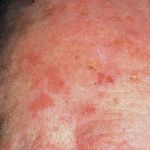
Australians have the highest rate of skin cancer in the world. And no matter what you might think, everyone ” no matter what their skin colour ” is at risk.
“Although skin cancer rates among Indigenous Australians are lower, there’s no question that Indigenous people are still very much at risk of skin cancer,” says Craig Sinclair Chair of The Cancer Council Australia’s Skin Cancer Committee. “This is despite the fact that Indigenous people are more likely to have dark skin.”
A darker colour means that your skin has more melanin ” which is the pigment in your skin that turns darker when you go out in the sun. Although melanin does offer your skin some protection, it is not 100 per cent protective against the sun’s rays.
“It’s still very important to take steps to protect your skin,” Craig says.
Skin cancer is a disease of the body’s skin cells caused by overexposure to ultraviolet (UV) radiation from the sun’s rays or from other sources such as solariums or sun beds. UV damages the genes in your skin’s cells.
To keep yourself safe from those UV rays, wear a wide-brimmed hat and SPF 30+ sunscreen. You should reapply your sunscreen regularly.
“You should also wear protective clothing, like a long-sleeved cotton shirt,” he says. “But the best thing you can do is stay out of the sun as much as you can, especially during the middle of the day, when the sun is at its hottest.”
It’s also a good idea to keep an eye on your skin, and if you see anything unusual, get it checked out by a doctor straight away.
“Look out for any moles or freckles that have changed in appearance,” Craig says. “They may have become larger, or changed in shape or colour. You should also watch out for any lesions or sores on your skin that look unusual or are not healing.”
If you do find something unusual, get your doctor to take a look. They may take a biopsy (take a small sample of the area and send it to the lab to be analysed). Or they may want to remove it, which can be done with minor surgery, or it can be burnt or frozen off, or they may use a special ointment.
“Most cases of skin cancer are easy to manage if they’re caught early,” says Craig. “It’s only when it’s left for too long that it can spread to other parts of your body and maybe even kill you.”
If you want to find out more about skin cancer, or how to protect yourself from the sun, call the Cancer Council information line on 13 11 20 or head to their website at www.cancer.org.au
Comments are closed.